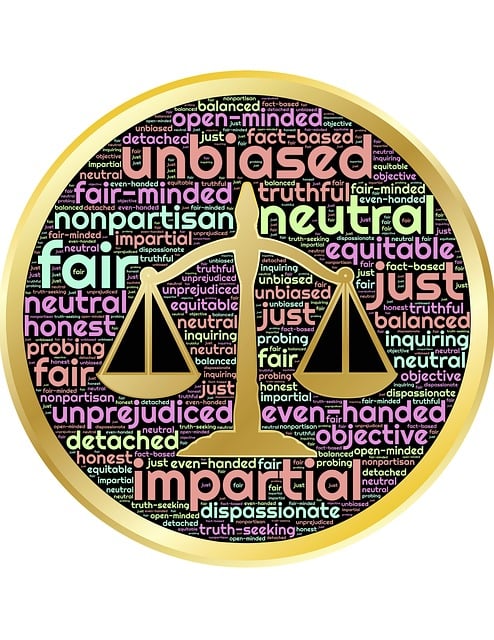RF Regulatory Agency investigations ensure compliance with RF standards in technologies like wireless communications and medical equipment. Guided by the Federal Sentencing Guidelines for Drug Offenses, these inquiries involve data-driven analysis, evidence collection, and transparent communication to identify violations. Serious repercussions include legal penalties, license revocations, reputational damage, and costly defenses. Proactive compliance through internal reviews, specialized legal teams, and strategic engagement are crucial to mitigate these risks.
“RF Regulatory Agency Investigations: Navigating the Complexities for Business Resilience
In an era where technology drives innovation, understanding RF (Radio Frequency) regulatory compliance is paramount. This article delves into the intricacies of federal investigations, with a focus on drug-related offenses and their implications under the Federal Sentencing Guidelines. We explore the process, procedures, and impact of RF agency inquiries, offering insights for businesses and individuals alike to prepare and respond effectively, ensuring resilience in an ever-watchful regulatory landscape.”
- Understanding RF Regulatory Agency Investigations
- The Role of Federal Sentencing Guidelines in Drug Offenses
- Process and Procedures for RF Agency Inquiries
- Impact of Investigations on Businesses and Individuals
- Strategies to Prepare and Respond to RF Regulatory Queries
Understanding RF Regulatory Agency Investigations

RF Regulatory Agency Investigations play a critical role in ensuring compliance with radio frequency (RF) standards and regulations. These agencies, often tasked with oversight responsibilities, conduct thorough inquiries into potential violations involving RF technologies. From emissions testing to equipment certification, their investigations cover a broad spectrum of areas. The process involves meticulous data collection, analysis, and evidence-gathering to determine if there’s a violation of rules governing RF devices, which are ubiquitous in our modern world, from wireless communications to medical equipment.
In the context of these probes, understanding the legal framework is paramount. The Federal Sentencing Guidelines for Drug Offenses, while not directly applicable, offer insights into sentencing considerations for violations involving technology and innovation. This is particularly relevant when dealing with intentional or reckless disregard for RF regulations. Moreover, the implications extend beyond legal penalties; investigations can impact a company’s reputation, especially in the philanthropic and political communities, where transparency and compliance are highly valued. Across the country, these inquiries ensure that industries operating within RF domains adhere to safety standards, fostering an environment conducive to technological advancement without compromising public health and welfare.
The Role of Federal Sentencing Guidelines in Drug Offenses

The Federal Sentencing Guidelines for Drug Offenses play a pivotal role in shaping the outcomes of drug-related crimes across the nation. These guidelines serve as a uniform framework, ensuring consistent sentencing practices among federal courts handling similar cases. In high-stakes cases involving drug offenses, these guidelines provide a structured approach to justice, taking into account various factors such as the type and quantity of drugs involved, the role of the defendant in the criminal enterprise, and their prior criminal history. This consistency is particularly crucial when dealing with corporate and individual clients accused of drug-related crimes, ensuring fairness and predictability in the legal process.
For general criminal defense attorneys representing clients in these cases, understanding and navigating the Federal Sentencing Guidelines for Drug Offenses is essential. The guidelines influence not only the potential prison sentences but also fine amounts and terms of supervision, shaping the overall outcome of the case. By recognizing the complexities within these guidelines, legal professionals can develop robust strategies to advocate for their clients, aiming for the best possible resolution in what can often be challenging and sensitive high-stakes cases.
Process and Procedures for RF Agency Inquiries

When a Radio Frequency (RF) Regulatory Agency initiates an investigation, it follows a meticulous process designed to ensure fairness and adherence to legal standards. The initial phase involves gathering evidence, which may include inspecting equipment, examining records, and conducting interviews with individuals involved. This stage is crucial in building a robust case, especially for high-stakes cases where a winning challenging defense verdict could be at stake.
Throughout the inquiry, federal agencies adhere to the Federal Sentencing Guidelines for Drug Offenses, ensuring procedural fairness and proportional sentencing. The agency must establish clear lines of communication with all parties involved, providing transparency and allowing for due process rights. This structured approach, combined with an unprecedented track record of success, enables the RF Regulatory Agency to navigate complex cases effectively, ultimately leading to either compliance resolutions or robust legal defenses.
Impact of Investigations on Businesses and Individuals

RF Regulatory Agency investigations can have profound implications for businesses and individuals alike. When such agencies uncover violations, they often lead to significant penalties under the Federal Sentencing Guidelines for Drug Offenses, especially in high-stakes cases. These guidelines are designed to reflect the seriousness of the offense, promote consistency in sentencing, and deter future misconduct. For businesses, this could mean substantial fines, license revocations, or even the complete dismissal of all charges if they can demonstrate compliance efforts and a willingness to cooperate with investigations.
The impact extends beyond financial losses; reputational damage is also significant. While the philanthropic and political communities may offer support during such times, the process itself can be lengthy and stressful for all involved. Individuals face similar challenges, with potential consequences including legal fees, employment restrictions, and personal embarrassment. Therefore, proactive measures to ensure regulatory compliance are crucial for mitigating these impacts.
Strategies to Prepare and Respond to RF Regulatory Queries

Preparing for and responding to RF (Radio Frequency) Regulatory Agency queries can be a complex task, especially in high-stakes cases involving corporate and individual clients. To effectively navigate these investigations, it’s crucial to have a robust strategy in place. Firstly, companies should conduct a thorough internal review, ensuring compliance with all relevant RF regulations and standards. This includes documenting procedures, maintaining accurate records, and identifying potential areas of non-compliance that may require immediate attention.
Additionally, assembling a legal team experienced in handling such inquiries is paramount. Experts in the field can guide clients through the process, ensuring their rights are protected while providing transparent communication with regulatory bodies. Given the significant implications of these investigations, which could lead to substantial fines or even a complete dismissal of all charges, it’s wise to approach them proactively and with well-informed strategies tailored to each unique case.
RF Regulatory Agency investigations, with their focus on ensuring compliance in the radio frequency (RF) spectrum, significantly impact businesses and individuals involved in drug-related offenses. Understanding these inquiries’ process and procedures is crucial, especially in light of the Federal Sentencing Guidelines for Drug Offenses. By employing strategies to prepare and respond effectively, entities can mitigate risks and navigate these investigations successfully. This ensures not only adherence to RF regulations but also fair treatment under the federal sentencing framework.






